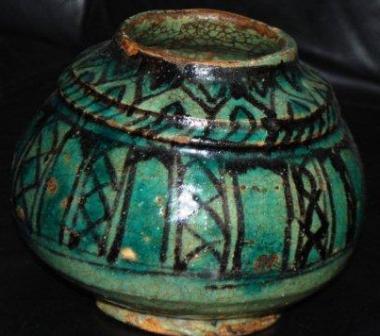If you enjoy eating uncooked pasta, have you ever worried if it might be damaging your teeth? It’s an intriguing query that has generated some discussion. We want to clarify the subject and give you the information you need in this blog. We’ll look at whether eating raw pasta actually endangers your dental health, despite the convenience and crunch that it offers. So let’s get down to the subject at hand: Does eating raw pasta harm your teeth?
In general, eating raw pasta in moderation is not bad for your teeth. Raw pasta is rough and can be challenging to chew because it is essentially dry and undercooked. However, chewing does not considerably damage your teeth in and of itself. The primary issue with eating raw spaghetti is that it can be difficult to break up into smaller pieces, which could cause pain or stress on your teeth.
However, it’s crucial to understand that raw spaghetti shouldn’t be consumed on its own. Pasta that hasn’t been cooked has the wrong texture and flavour. When pasta is cooked in boiling water, it becomes softer and is simpler to chew and digest. Additionally, heating pasta aids in eradicating any pollutants or bacteria that can be on the uncooked noodles.
It is possible that over time, consuming huge quantities of raw spaghetti on a regular basis will cause tooth problems. You run the danger of damaging dental restorations or breaking teeth if you chew food that is too rough for you.
It is typically advised to eat cooked pasta to maintain good tooth health. It’s best to speak with a dentist or healthcare provider for particular guidance if you’re worried about your dental health or have certain dietary requirements.

Does it make any difference if it is gluten free pasta?
There isn’t much of a difference between ordinary pasta and gluten-free spaghetti in terms of how it affects your teeth. If eaten raw, any kind can still be harmful to your tooth health.
Raw gluten-free pasta’s texture and hardness might change based on the individual components used. While certain varieties of gluten-free pasta can still be rather hard, others might be softer or more fragile. Nevertheless, as was previously said, biting into uncooked, hard pasta has the potential to result in tooth issues regardless of the type of pasta.
It’s crucial to remember that heating pasta of any kind, whether it contains gluten or not, drastically changes its texture and makes it softer and simpler to chew. To ensure that gluten-free pasta has the right consistency for ingestion, follow the cooking directions on the container.
A good choice for your general health is gluten-free pasta if you have special dietary restrictions or need to avoid gluten. To reduce any possible threats to your teeth, it is nevertheless advised to completely cook the pasta before eating it when it comes to dental health.
Does raw pasta have a lower GI?
Compared to cooked pasta, raw pasta often has a lower glycemic index (GI). The glycemic index gauges how rapidly foods high in carbohydrates boost blood sugar levels. Foods having a lower GI are thought to affect blood sugar levels more gradually and slowly.
The starches in pasta undergo gelatinization after cooking, making them more palatable. Compared to eating raw spaghetti, this may cause blood sugar levels to rise more quickly. The starches in raw, ungelatinized pasta, on the other hand, take longer for the body to digest and break down, resulting in a lower GI.
However, it’s crucial to keep in mind that a food’s GI might change depending on a number of variables, including the type of pasta, cooking time, and individual digestive variances. Additionally, a food’s GI is only one factor to take into account when assessing its overall nutritional worth. A food’s impact on blood sugar levels and general health can also be influenced by additional elements, such as fibre, protein, and fat content.
It is advisable to speak with a healthcare expert or registered dietitian if you have specific dietary issues or are managing a medical condition like diabetes. They can offer individualised advice and assist you in making decisions regarding your nutritional intake.

Is it better to eat raw 2 minute noodles?
No, it is not advised to consume raw 2-minute noodles or any other kind of instant noodles. It’s vital to follow the cooking directions listed on the packaging, even though the title “2-minute noodles” implies a rapid and convenient preparation time.
You should prepare instant noodles before eating them for the following reasons:
- Digestion and Texture: The texture and flavour of raw instant noodles are unpleasant. The noodles’ texture is enhanced and softened after cooking, making them simpler to chew and digest.
- Safety Issues Although they frequently go through a pre-cooking procedure during manufacture, instant noodles are not meant to be eaten uncooked. Instant noodles that are consumed uncooked could expose you to bacteria, pollutants, or parasites that heating could kill.
- Enhancement of Flavour: When instant noodles are cooked in boiling water, the flavours from the seasoning packets seep into the noodles, improving their flavour and the overall dining experience.
- Noodles’ nutrients can be more easily absorbed by the body when they have been cooked. Raw noodle consumption may reduce the bioavailability of several nutrients.
In conclusion, it is recommended to prepare instant noodles in accordance with the directions supplied. Cooking makes food safe, enhances flavour and texture, and helps nutrients absorb more readily. Consult with a healthcare provider or nutritionist for individualised advice if you have certain dietary concerns or limits.
Relevant Articles
How Long Does Carbonara Last In The Fridge?

Comments are closed